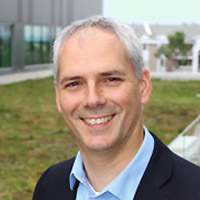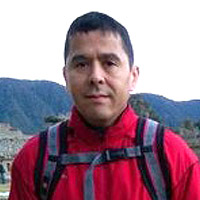
A digital foundation for sustainability in cement industry
Digital Transformation is reshaping the cement industry. In addition to improving their productivity, more and more companies are now focusing their efforts on improving the sustainability of their operations.
We all know what this term means, but do we know how to get our operations there? What kind of technologies will become instrumental on this journey?
Cement producers responsible for 30% of the world’s cement production have started their pursuit to develop sustainable operations and this number is expected to grow over the coming years. Organisations need to be wise and strategic when selecting a foundation to support their initiatives.
This presentation will cover a few sustainability success stories and show how digital technology can help you boost your sustainability efforts by improving energy management, environmental performance and health and safety of your operations.
In 2010, CEMEX embarked on a project to leverage OSIsoft’s PI System as its data infrastructure and the existing control system to measure and optimise energy consumption across all assets. Before long, CEMEX had an online view of calorific and electrical energy consumption for all assets in one plant, enabling team members to set KPIs, monitor energy usage and make adjustments in real-time. To optimise heat recovery within the clinker cooling process, CEMEX operators had to control the input of the air and the cooling rates, all while ensuring process stability and product quality. Though CEMEX operators are skilled, it was impossible to have the most experienced team members available every day. The company opted to feed AI-driven recommendations directly into the kiln control system via the PI System to help all operators achieve ‘golden run’ capabilities. Using a ‘predict, prescribe, autosteer’ plan, the self-learning AI software analysed past performance data to create output variables that would predict cooler behavior. Predictions were fed into the data infrastructure, allowing operators to visualise projected behavior for the next 5 – 15 min. alongside real-time performance data. CEMEX also moved from predictive to prescriptive analytics. Using the contextualisation layer of the data infrastructure, operators received AI-recommended settings for optimising the clinker cooling process. From energy consumption to kiln settings, operators could visualise a range of set points and recommendations based on prior performance. During this phase, CEMEX relied heavily on operators’ expertise, allowing them to offer direct feedback and fine-tune the AI-recommended settings prior to deployment. Once it became clear that settings were on track, it was time to move to stage three – autopilot. In conjunction with operator oversight, the combination of AI and data infrastructure technologies can now predict future kiln performance and automatically feed proposed settings into the control system. Thanks to autopilot capabilities, CEMEX is obtaining higher exit air temperatures in the cooler, resulting in energy savings. When the autopilot is running, the company expects to improve energy usage by 2 – 7%. It has already seen a reduction in process variability by half of the standard deviation and an increase of the overall yield by 5%.
For UNACEM, improving existing cement manufacturing processes was critical to maintaining competitive advantage and product quality while reducing costs and downtime. However, there were bottlenecks between heating and dispatching during the grinding process, and operational procedures were not standardised, causing equipment downtime and process instability. Starting with a stabilisation roadmap, UNACEM automated and standardised processes and KPIs, creating a baseline for every operator. Engineers created KPIs for each machine, product, shift, hour and operator, deployed dashboards and applied standardised data models across all assets. Once KPIs were established, operators were able to use real-time operational data to compare actual performance to projected metrics. With the help of notifications, they could see when asset performance deviated from projected metrics, allowing them to take corrective action before bottlenecks – and subsequent downtime – occurred. By giving operators access to the right insights, UNACEM improved cement milling runtime by anywhere from 11 – 17% in one year. Given the increase in runtime and additional process stability, UNACEM was also able to reduce its environmental impact while increasing profits by US$6 million. To optimise the manufacturing process while reducing cement’s environmental impact, manufacturers are embarking on new digital journeys, otherwise known as cement 4.0.
Watch this presentation to see how a digital foundation is critical for succeeding in reaching your sustainability goals.


